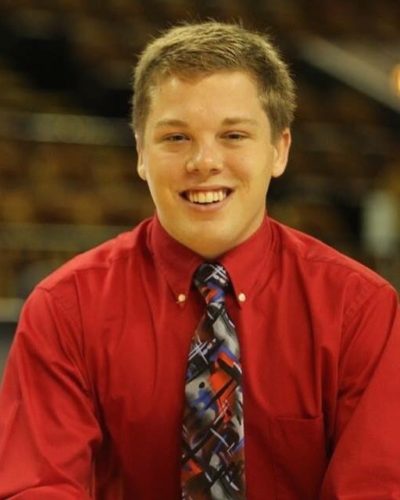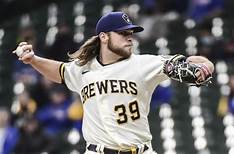Brewers have whiffed more than connected with No. 1 picks in last decade
By DAN ZIELINSKI
The MLB draft is the hardest draft to have success in out of the four major professional sports in the United States. There are numerous factors that play into a prospect working his way through the minor league system and having a respectable major league career.
In the last 10 years, the Milwaukee Brewers have had little luck with their first-round selections, whether that’s due to a poor selections or a lack of player development.
Here’s a look at the Brewers’ first round-picks since 2009:
2009
No. 26 overall: Eric Arnett, RHP, Indiana
No. 39 overall: Kentrail Davis, OF, Tennessee
No. 47 overall: Kyle Heckathorn, RHP, Kennesaw State
One pick after Los Angeles Angels selected Mike Trout, the Brewers drafted Arnett. Despite having a successful junior season at Indiana, Arnett struggled in pro baseball, never advancing higher than Class A. He was released in 2014.
Davis moved through the minor leagues quickly and was in Class AAA by 2013. However, he didn’t make it to the big leagues, struggling with plate discipline. He was released in 2014.
Heckathorn was a high-risk, high-reward righty from Kennesaw State, who many scouts thought would be a reliever in the majors. He never made it past Class AAA and was released in 2014.
2010
No. 14 overall: Dylan Covey, RHP, Maranatha HS (Calif.)
Covey didn’t sign with the Brewers and honored his commitment at the University of San Diego after being diagnosed with diabetes in a post-draft physical.
2011
No. 12 overall: Taylor Jungmann, RHP, Texas
No. 15 overall: Jed Bradley, LHP, Georgia Tech
Jungmann was a highly-regarded college pitcher coming out of Texas but didn’t make his major league debut until 2015. He made at least one appearance between 2015-17 with the Brewers but never panned out.
In 2015, the Brewers transitioned Bradley into a reliever after three average seasons as a starting pitcher. He never appeared in a game with the Brewers, who traded Bradley to Atlanta in 2016 where he made six major-league appearances.
2012
No. 27 overall: Clint Coulter, C, Union HS (Wash.)
No. 28 overall: Victor Roache, OF, Georgia Southern
No. 38 overall: Mitch Haniger, OF, Cal Poly
The Brewers moved Coulter to the outfield after drafting him. Coulter experienced mixed results throughout his seven minor-league seasons, reaching Class AAA in 2018. The Brewers didn’t renew his contract after 2018, and he’s now playing in the American Association of Independent Professional Baseball.
Roache was known for his raw power when he entered pro ball but struggled to produce at the plate. The Brewers traded him to the Los Angeles Dodgers in 2017. He finished the season in the Dodgers’ organization before signing with St. Louis prior to 2018. He’s now playing in the American Association of Independent Professional Baseball.
Coming out of Cal Poly, Haniger displayed solid power and defensive abilities. The Brewers traded Haniger to the Arizona Diamondbacks in a two-player deal for outfielder Gerardo Parra in 2014. Now with Seattle, Haniger has developed into a solid everyday player. He was an All-Star in 2018.
2013
No first-round pick after signing free-agent pitcher Kyle Lohse
2014
No. 12 overall: Kodi Medeiros, LHP, Waiakea HS (Hawaii)
Coming out of high school, many scouts believed the Hawaiian lefty would be a reliever as a pro due to his unorthodox arm angle. He struggled in his five seasons with the Brewers before they dealt him with another prospect to the Chicago White Sox for reliever Joakim Soria in 2018.
2015
No. 15 overall: Trent Clark, OF, Richland HS (Texas)
No. 40 overall: Nathan Kirby, LHP, Virginia
When the Brewers drafted Clark, who now goes by Trent Grisham, scouts considered him a well-rounded prep player. But after a strong performance in Rookie ball in 2015, he has struggled to produce at the plate. He is hitting .219 with five home runs, 16 RBIs, 42 strikeouts and 22 walks in 182 plate appearances at Class AA this season.
After pitching in five games, Kirby’s season ended with Tommy John surgery in 2015. He didn’t resume pitching until 2018 when he appeared at Class A Carolina and posted a 4.82 ERA with 75 strikeouts and 46 walks allowed in 71 innings between the starting rotation and bullpen. He hasn’t pitched this season.
2016
No. 5 overall: Corey Ray, OF, Louisville
Ray was one of the top college position players in the 2016 draft, and scouts expected him to breeze through the minor leagues. That hasn’t been the case for Ray, though. He’s struggled to display the feel for hitting that scouts praised throughout his three years at the University of Louisville and also has dealt with an injury early in his pro career.
Last season at Class AA, Ray hit .239 with 27 home runs, 74 RBIs and 34 stolen bases. He struck out 176 times compared to 60 walks drawn. He hasn’t produced through 24 games at Class AAA this season, hitting .188 with three home runs, eight walks, 46 strikeouts and 10 walks in 107 plate appearances.
Ray doesn’t display the five-tool potential he did in college. Although he might not hit for average and post high strikeout numbers, Ray has a chance to be a major-league contributor within the next year.
2017
No. 9 overall: Keston Hiura, 2B, UC-Irvine
Everyone knew Hiura could hit coming out of UC-Irvine as a junior in 2017. The one question was about his elbow injury and his future defensive position. Hiura hasn’t necessarily answered the second of the two questions but hit his way through the minor league to receive a call-up from the Brewers this season.
He’s the first position player from the 2017 draft class to reach the majors. Although his projects as an average defensive player, Hiura has an impact bat.
2018
No. 21 overall: Brice Turang, SS, Santiago HS (Calif.)
Scouts considered Turang in a small group of players for the first overall pick in last year’s draft before his senior season of high school baseball began. Although Turang performed well, scouts nitpicked him in the months leading up to the draft. It allowed the Brewers to select one of the best players in the draft with their first-round choice.
Turang started this season in Class A, an aggressive placement for a teenager in his first full pro season, but he’s produced. He projects as a potential All-Star caliber player in the major leagues.




